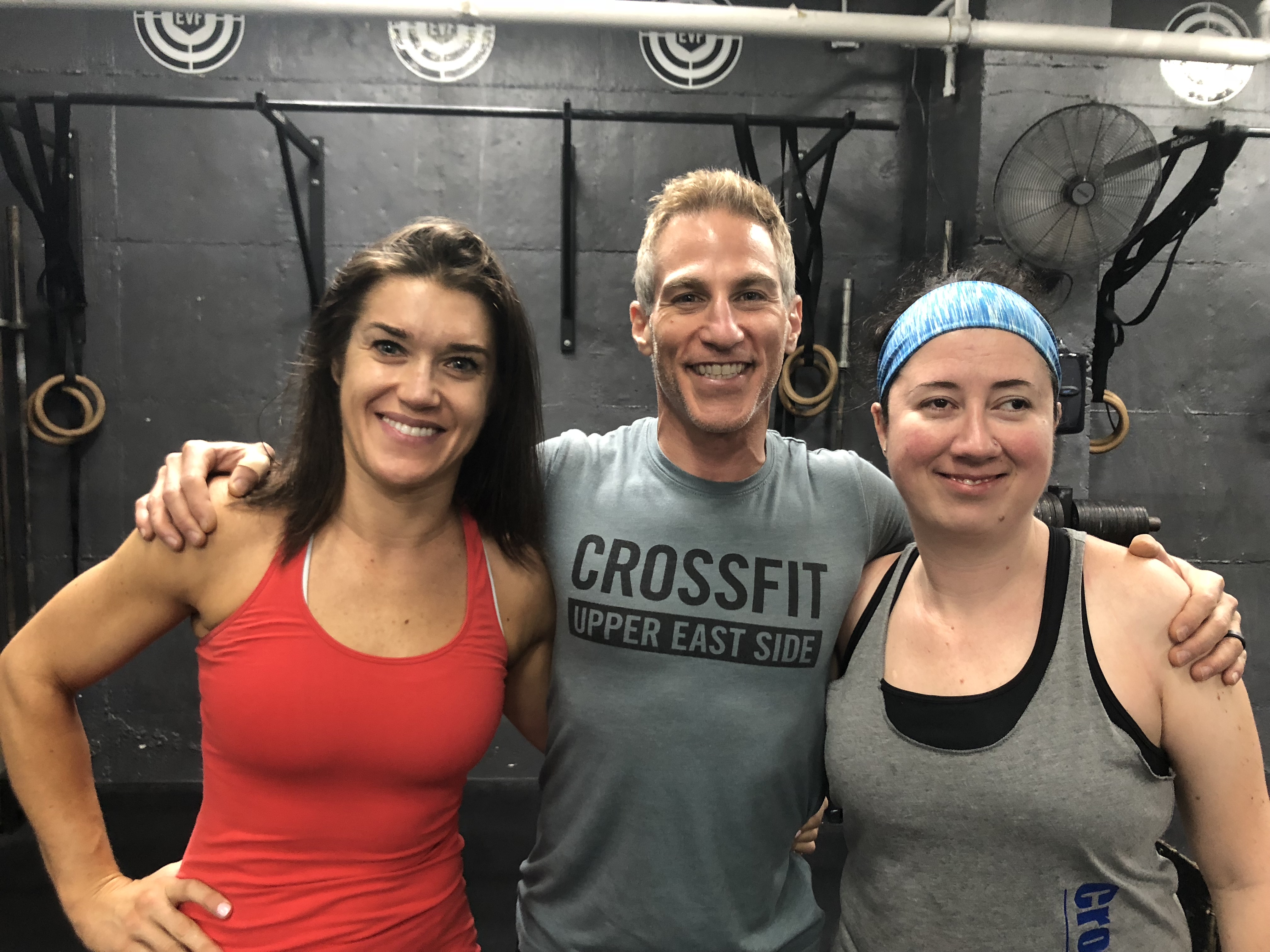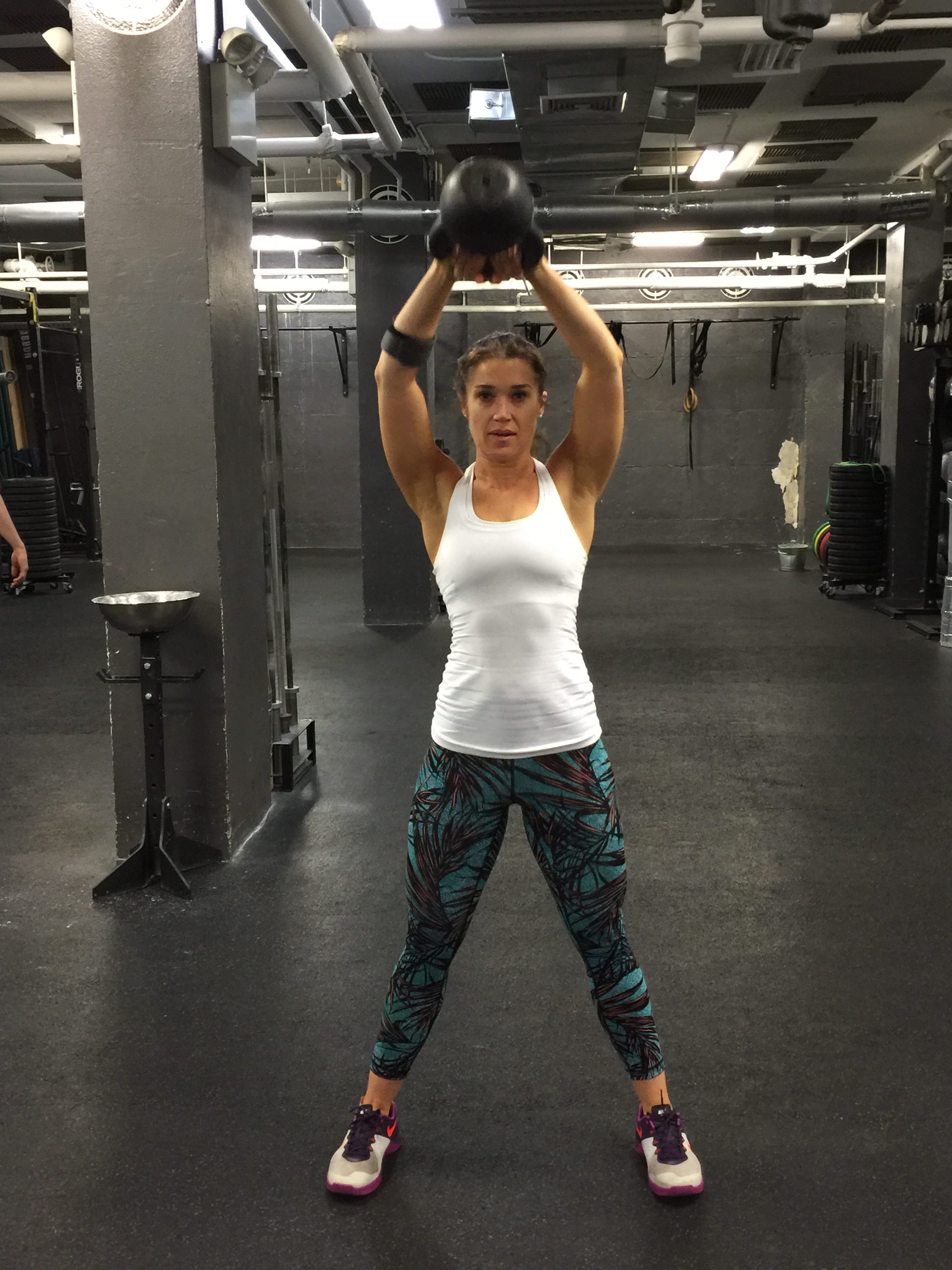Athlete spotlight: Rebecca
October is Blindness Awareness Month. In honor of World Sight Day, Oct. 11, and Blind Americans Equality Day, Oct. 15, we’re spotlighting two EVF athletes, Rebecca and Jess, who are visually impaired.
First up, meet Rebecca! Born with a rare genetic disorder called Usher Syndrome Type III, Rebecca has been simultaneously losing both her sight and hearing since she was a teenager. She was told that by age 30, she’d be completely blind due to an associated eye disorder called retinitis pigmentosa. In RP, the retina at the back of the eye gradually deteriorates and leads to loss of peripheral vision and night vision. The field of vision narrows until you can only see straight ahead. Because of the problems with both hearing and sight, many people who suffer from Usher Syndrome have trouble with balance as well.
What’s your training background?
I started CrossFit training in 2010, competed in Civilian Military Combine (CMC) races, and started training at EVF 360 classes in 2015.
Do you remember your first workout? How was it?
I remember the first time I was introduced to CrossFit by a friend who said he thought I would fall in love with the functional fitness workout and the ability to get a high intensity, ass-kicking workout without having to worry about a lot of moving around or navigating a room (i.e. burpees, snatches, clean and jerks, kettlebell swings, pull ups, toes to bar, etc.) I’m now a 360 groupie and I love how supportive and hardworking the community is.
What were your goals when you first started? How have they changed?
My goal has always been to challenge myself. There is no better feeling, both physically and mentally, than working hard to strengthen my mind and body. I can’t control the fact that I have a condition that is causing me to go blind and deaf, but I can control how I take care of myself and what I do to strengthen the parts of me that I do have control of.
What would you like other athletes who are fully able-bodied (sighted and hearing) to know?
First, I want to thank the entire EVF UES community for embracing us and making us feel like every other athlete showing up to work hard. I am so touched when people offer to help get the right size kettlebell or grab my hand to lead me through a crowded room to the ring rows in the back.
I am SO f#@%ing proud of our community for stepping up unlike any other community I have been a part of to make us feel so included and accommodated for.
I know how much uncertainty and discomfort people sometimes feel when interacting with people who have disabilities. Often times, we don’t know whether to offer help or pretend we don’t see someone’s disability. When you have a disability, you live with it every day, working hard to navigate your environment safely while keenly aware of other people’s discomfort with your circumstances. The best thing you can do is ask if you don’t know whether you can be helpful or not. The worst thing that could happen is that a person with a disability says, “No thanks!”
How have you grown in your time at EVF — health, body, mind, etc.?
I have developed greater comfort in training as an athlete with a disability because of the support I have received at EVF. I am more comfortable asking for help or for modifications or alternatives when doing something that isn’t safe for me to do (i.e. running alone). There is always someone who is willing to be my WOD partner when need be. Thank you EVF 360 community members for always KILLING a WOD and offering to be my partner when a class is particularly packed.
What do you enjoy most about EVF?
I am so drawn to EVF because there is no better feeling than finishing an intense WOD, dropping to the floor, lying on my back to catch my breath, and just taking it all in. In those moments, I feel so alive, so strong, and so able-bodied. Most importantly, I love the supportive and upbeat community of the UES EVF.
Favorite lift and WOD?
I love toes to bar, jumping rope, deadlifts, and sumo deadlift high-pulls and weighted sit-ups.
What about your least favorite?
Weighted step-ups and manmakers — they just take too long.
What motivates you?
Focusing on the things I AM capable of and I CAN do, not the things I can’t. The community of EVF motivates me because there is so much support and camaraderie among all of us.
What is the biggest challenge you face when training?
The biggest challenge I face is trying not to eat sh#t on kettlebells, dumbbells, plates, and med balls strewn all over the floor during a WOD. If you can remember to keep your equipment close to where you’re working (preferably not down the center of the room where most people walk), that would be really helpful!
Do you have any advice for new members?
Start where you are and give yourself credit for showing up and trying something new. Keep coming back, it’s so worth it.
What do you hope to achieve in the coming year?
Turning 40 and continuing to keep going strong!
Anything else?
I want to take this opportunity to give a HUGE SHOUT OUT to Matt Bronson. I have been an athlete for many years, long before I was cochlear implanted or even used a cane to get around. I have never had a coach who was more personable, thoughtful, and accommodating than Matt.
At the beginning of class, Matt often alerts the class that there are athletes with different abilities in the class and that those of us who are visually impaired place a bright star in the area where we’re training to remind people to be mindful and not to steal our equipment during a WOD!
I truly can’t express in words how much Matt’s coaching style has motivated and encouraged me to work hard and adapt a WOD to my needs without letting me off the hook with an easy alternative. Matt’s willingness to be hands-on with all of my cochlear implant devices (clipping my implant processor to the back of my shirt, adjusting the volume on my processor during a WOD, or simply letting me hand off any of my gear to him when I get super sweaty) has been invaluable to my experience training at EVF.
Matt is the best role-model for coaches looking to better accommodate and work with athletes of all different abilities. THANK YOU, THANK YOU, THANK YOU MATT!
2018 10 15

